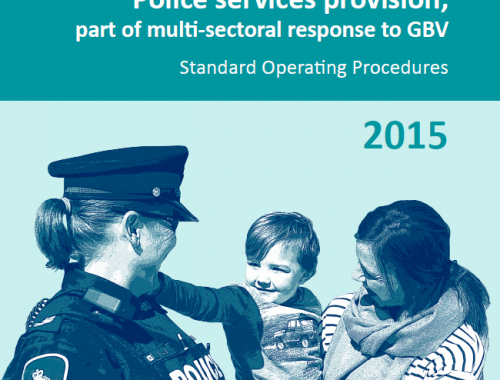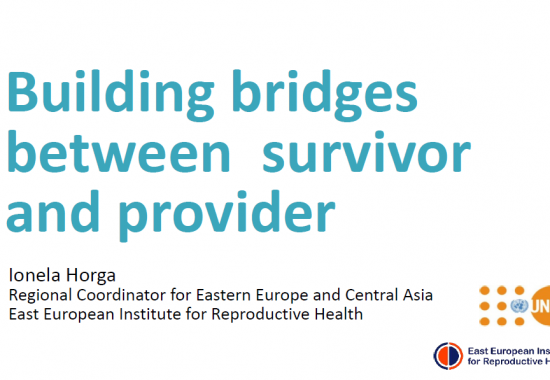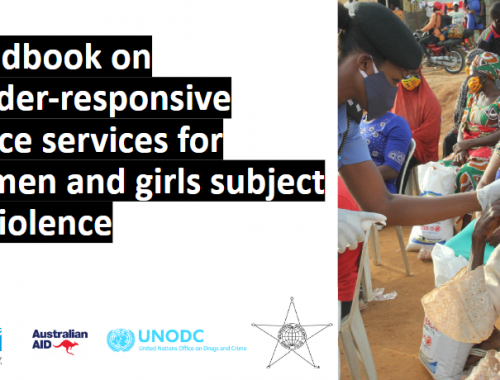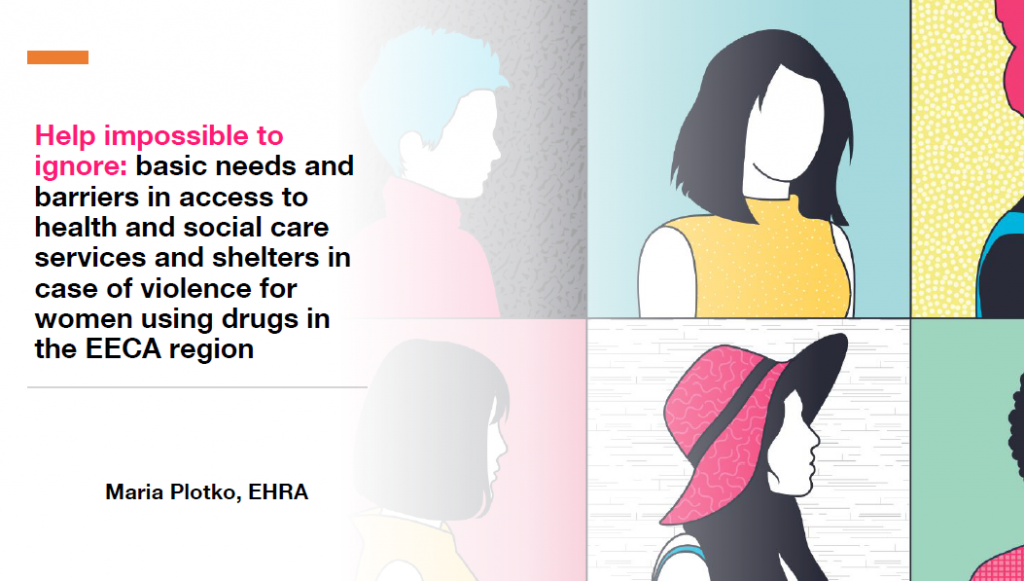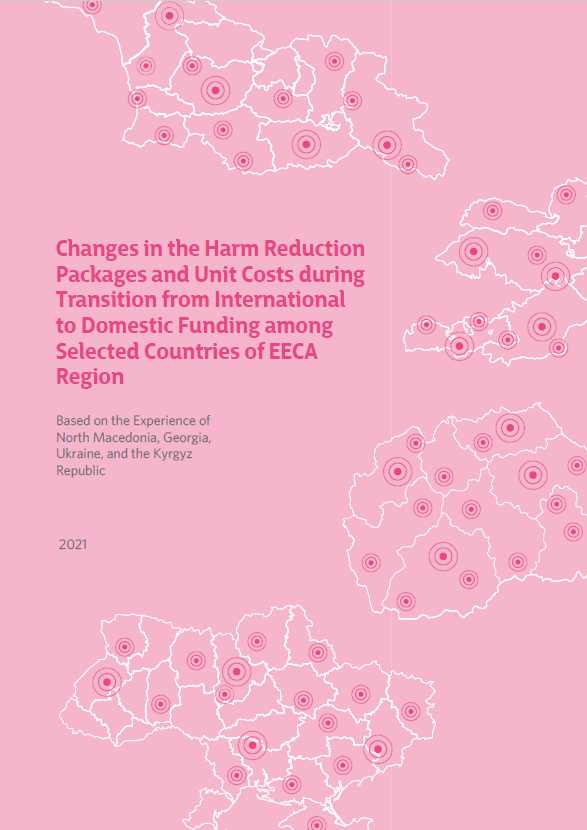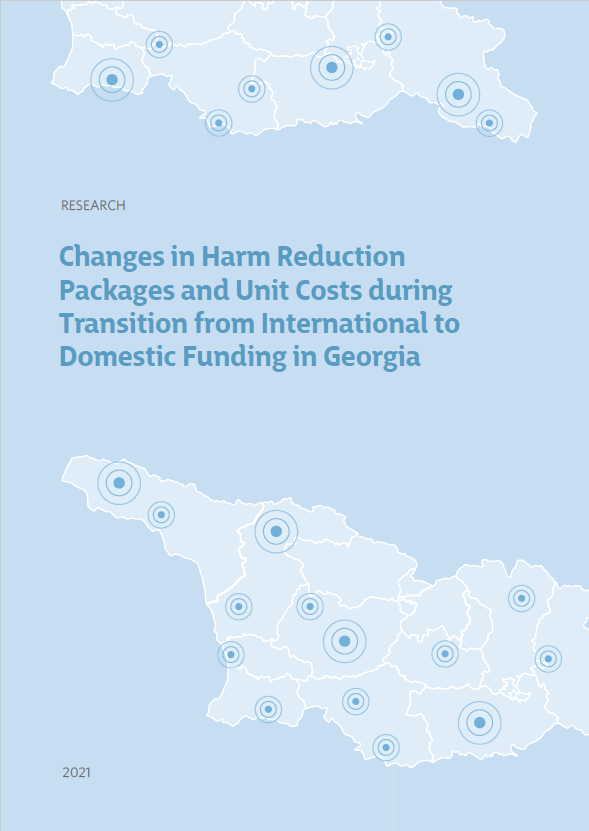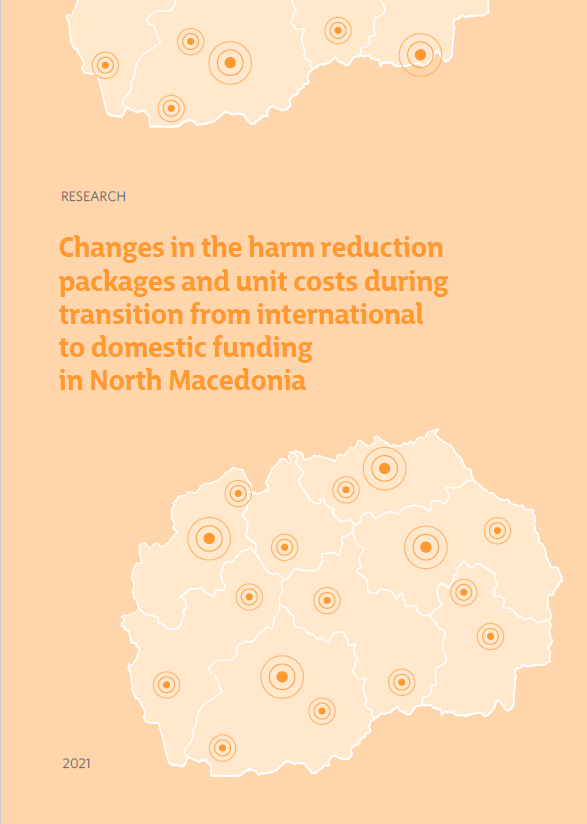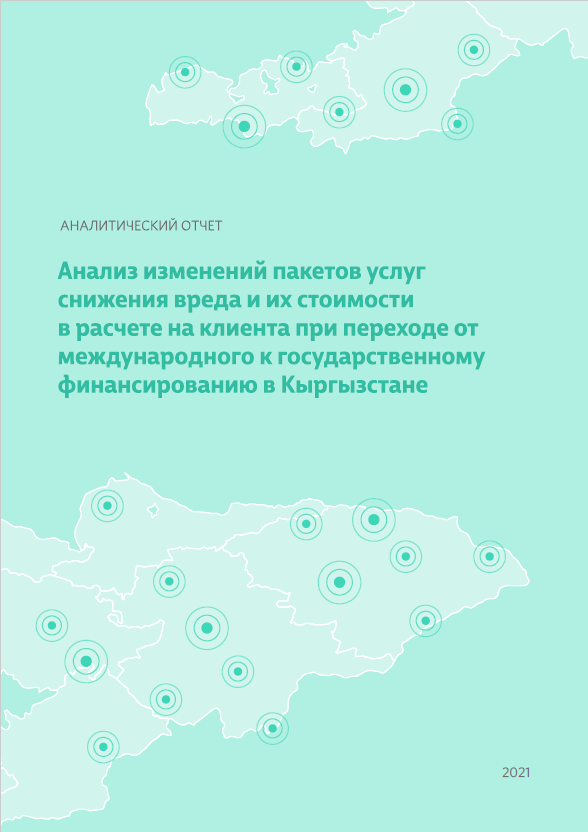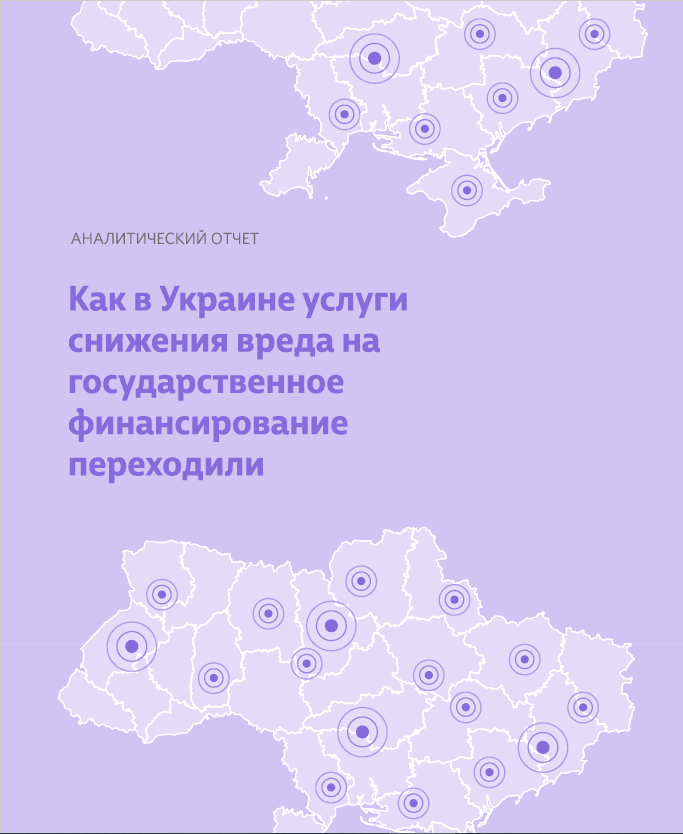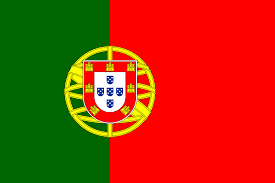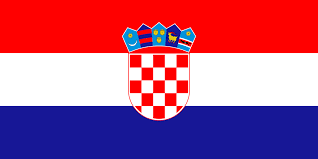Author: EHRA
Results of the sustainability assessment of the HIV response among Key Populations in nine countries of the EECA region in the context of transition from Global Fund support to domestic funding
In 2020, the Eurasian Harm Reduction Association (EHRA), being the part of the Global Fund funded EECA multi-country HIV project “Sustainability of Services for Key Populations in Eastern Europe and Central Asia”, developed a conceptual framework, methodology, and transition monitoring tool to help key populations most affected by HIV strengthen their capacity in monitoring the transition of HIV response from donors’ support (particularly, the Global Fund) to national funding. The assessment is tracking the implementation of government commitments to ensure the sustainable HIV response among key populations within those programmatic areas of a key priority for them.
In 2021, EHRA piloted the developed methodology and tool in nine countries in the EECA region to assess the fulfillment by the governments of their commitments to ensure a sustained response to HIV among key populations in the context of the transition from Global Fund support to national funding. The assessment was conducted in the following countries: Belarus, Georgia, Kazakhstan, Kyrgyzstan, Moldova, North Macedonia, Serbia, Tajikistan, and Montenegro. To implement it, EHRA involved local consultants. National experts from various sectors, including the public sector, communities, and relevant NGOs, were also involved in the assessment in each country.
The 9 reports resulted from the conducted assessments as well as the report providing a brief overview of the results of the assessments are available for download here:
- Assessment report on Belarus (available in Russian only)
- Assessment report on Georgia (available in English only)
- Assessment report on Kazakhstan (available in Russian only)
- Assessment report on Kyrgyzstan (available in Russian only)
- Assessment report on Moldova (available in Russian only)
- Assessment report on North Macedonia (available in English only)
- Assessment report on Serbia (available in English only)
- Assessment report on Tajikistan (available in Russian only)
- Assessment report on Montenegro (available in English only)
- A brief overview of the results of the sustainability assessment of the HIV response among Key Populations in nine countries of the EECA region in the context of transition from Global Fund support to domestic funding (available both in Russian and English)
The results of all 9 assessments were presented to the national partners at the online webinars and also at a number of a different national level thematic meetings. The Global Fund Portfolio Managers working with relevant countries were provided with the assessment reports and informed on the results as well.
In 2022, EHRA is planning to update and improve the assessment methodology and tool based on the results of pilots. And in 2023, the organization will conduct a reassessment in some countries.
EXTENDED: EHRA is looking for a consultant to provide communication support for the development of information materials to support the project “TIBERIUS: Overcoming legal barriers for key populations – on the way to 90-90-90”
| RFP Number | EHRA-06-20 |
| RFP Title | External consultant for communication support for the development of information materials to support the project “TIBERIUS: Overcoming legal barriers for key populations – on the way to 90-90-90” |
| RFP Closing Date and time: | 24:00 EET on June 23, 2022 |
| Proposal Submission Address: | info@harmreductioneurasia.org |
Background
The Eurasian Harm Reduction Association (EHRA) is a non-profit public membership organization that brings together activists and harm reduction organizations from Central and Eastern Europe and Central Asia (CEECA) to actively unite and support communities and civil society to ensure the right and freedom, health.
Since 2020, EHRA has been implementing the project TIBERIUS: “Overcoming Legal Barriers for Key Populations – Towards 90-90-90”.
The project’s goal is to increase the effectiveness of continuous HIV care by overcoming legal barriers for the most vulnerable key groups at the level of EECA cities. The project is implemented by the Tanadgoma Reproductive Health Information and Counseling Center in Georgia, the Kazakhstan Union of People Living with HIV in Kazakhstan, the Union of Organizations Working in the field of HIV/AIDS Prevention and Harm Reduction (UORN) in Moldova with expert support from the HIV Legal Network /AIDS, ECOM – Eurasian Coalition on Health, Rights, Gender and Sexual Diversity and Sex Workers’ Rights Advocacy Network (SWAN). The project aims to build the capacity of lawyers/s and paralegals/s to provide legal assistance to people who use drugs, men who have sex with men, and sex workers/sex workers to overcome legal barriers to accessing HIV care cascade. Together with project partners, EHRA will address human rights abuses and legal barriers and analyze systemic legal trends to advocate for changes that will ultimately help reduce the vulnerability of key populations to HIV and improve their access to the continuum of HIV care.
For information support of the above project, EHRA is looking for a consultant to prepare information materials on the project results in Kazakhstan, Moldova and Georgia.
Purpose of the consultancy
The consultant is expected to develop separate information product packages for each of the three project countries, reflecting the project’s model of operation, effectiveness, and achievements. Therefore, EHRA proposes that the consultant’s workflow should include (but not be limited to) the following steps:
- Get acquainted with the project, results, work model, and prepared information materials. It is expected that the consultant will obtain this information due to desk research and interviews with project teams in Kazakhstan and Moldova, Georgia.
- Develop and agree with the EHRA and project teams on the concepts and structures of information packages separately for Kazakhstan, Moldova, and Georgia.
- Ensure the preparation of the above information materials separately for Kazakhstan, Moldova, and Georgia. It is expected that during the preparation process, the consultant will independently attract all the necessary technical specialists (translators, designers, etc.).
- Provide consulting support to project teams in Kazakhstan, Moldova, and Georgia in the process of publishing and disseminating information products.
It is expected that when preparing information products, the consultant will rely on the requirements and recommendations of the project donor for the preparation of such products. After the tender, the EHRA responsible specialist will provide these requirements and recommendations to the consultant to the consultant.
Scope of Services
The following products should be provided as a result of the work performed by the consultant under this TOR:
– Prepared packages of information products for Georgia, Moldova, Kazakhstan;
– Recommendations for project teams in Kazakhstan, Moldova, Georgia in the publication and dissemination of information products
Proposed timeline:
– by June 17 – the consultant must familiarize himself with all the documents provided by the EHRA on the work of the project and conduct appropriate desk research;
– by June 24 – the consultant must conduct interviews with project teams in Kazakhstan, Moldova, and Georgia;
– by July 1 – the consultant should develop and agree with the EHRA and project teams on the concepts and structures of information packages separately for Kazakhstan, Moldova, and Georgia;
– by July 29 – the consultant must ensure the preparation of the above information materials separately for Kazakhstan, Moldova, and Georgia;
– by September 31, the consultant must provide consulting support to project teams in Kazakhstan, Moldova, and Georgia to publish and distribute information products.
Cost of services and payment order
The total contract value of a consultant under this ToR shall not exceed $7,000 (including all taxes and related expenses). Given the terms of the TOR, it is assumed that payment under the contract will be divided into two parts:
50% will be paid to the consultant after developing and presenting the concept and structure of information packages separately for Kazakhstan, Moldova, Georgia and the relevant TOR documents to appointed EHRA staff/experts.
50% will be paid after reviewing and finalising the information package for Kazakhstan, Moldova, Georgia and relevant TOR documents to appointed EHRA staff/experts.
Evaluation criteria / requirements for candidates:
Submitted applications will be evaluated by the evaluation panel of the Eurasian Harm Reduction Association.
A two-stage procedure will be utilized in evaluating the proposals:
- evaluation of the previous experience (portfolio) via technical criteria – 80% in total evaluation.
- comparison of the costs (best value for money) – 20% in total evaluation. The EHRA will evaluate the proposal regarding the best value for money (price in euros and other factors are taken into account).
Cost evaluation is only undertaken for technical submissions that score a minimum 80 points out of a maximum of 100 as a requirement to pass the technical evaluation. A proposal that fails to achieve the minimum technical threshold will not be considered further.
| Сriteria: | Points |
| Experience in performing similar work (links to examples of relevant documents should be provided in the Motivation letter) | 60 |
| Proven skills to provide advisory support in the dissemination of information materials | 20 |
| Excellent written and spoken English and Russian | 20 |
| Maximum possible number of points | 100 |
This announcement shall not be construed as a contract or a commitment of any kind. This request for proposals in no way obligates EHRA to award a contract, nor does it commit EHRA to pay any cost incurred in the preparation and submission of the proposals.
Based on the evaluation results, the evaluation panel may decide to support several consultants. In this case, the evaluation panel will contact the selected consultants for negotiations.
How to apply
To be eligible as a EHRA consultant, any organization or individual must comply with the Eurasian Harm Reduction Association Code of Ethics which you can find at the following link: https://old.harmreductioneurasia.org/ehra-code-of-ethics/
Applicants must submit the following documents:
– CV,
– Letter of Interest. The CV and application should clearly reflect the competency of the candidate necessary to complete this task, as well as include the proposed number of working days for each stage, cost and timing of their implementation.
Please submit your proposal to the info@harmreductioneurasia.org .
In the subject line of your e-mail please indicate the RFP number and your name. Otherwise, the application will not be considered.
EXTENDED: EHRA is looking for the consultancy to revise the methodology and tools of the assessment of the fulfillment of the commitments taken by the governments to ensure the sustainability of HIV response among key populations in the context of transition from the Global Fund’s support
| RFP Number | EHRA-06-21 |
| RFP Title | External consultancy for the revise the methodology and tools of the assessment of the fulfillment of the commitments taken by the governments to ensure the sustainability of HIV response among key populations in the context of transition from the Global Fund’s support |
| RFP Closing Date and time: | 24:00 EET on June 27, 2022 |
| Proposal Submission Address: | info@harmreductioneurasia.org |
Background
Eurasian Harm Reduction Association (EHRA) is a non-for-profit public membership-based organization uniting harm reduction activists and organisations from Central and Eastern Europe and Central Asia (CEECA) with its mission to actively unite and support communities and civil societies to ensure the rights and freedoms, health.
Being a partner of the Alliance for Public Health, the All-Ukrainian Network of PLWH 100% Life and other regional networks in the implementation of the Global Fund funded regional HIV project “Sustainability of services for key populations in Eastern Europe and Central Asia”, EHRA is aimed at the improving the financial sustainability and allocative efficiency of HIV programs in EECA countries.
To contribute to this objective, in 2020 – 2021 EHRA has developed and piloted a methodology and tool for assessing the fulfillment of the commitments taken by the governments to ensure the sustainability of HIV response among key populations in the context of transition to national financing from the donors’ / Global Fund’s support. It is expected that the results of such assessment will help representatives of key affected communities maintain their awareness and engagement in monitoring of the transition related process and advocate for the sustainability of the national response to HIV.
In 2021, while piloting the developed methodology and tool, EHRA conducted nine assessments in such EECA countries as Belarus, Georgia, Kazakhstan, Kyrgyzstan, Moldova, Montenegro, North Macedonia, Serbia and Tajikistan.
EHRA is looking for a consultant to help with revising the current version of the methodology and tools based on the results of its piloting in 2021.
Goals and objectives
The consultant is expected to review and refine the methodology and tool for assessing the implementation of government commitments to ensure the sustainability of the HIV response among key populations in the context of the transition from Global Fund support based on a pilot project conducted in 9 EECA countries in 2021. Therefore, EHRA proposes that the consultant’s workflow should include (but not be limited to) the following steps:
- Acquaintance with the current version of the assessment methodology and tools.
- Familiarization with reports on the results of assessments in 9 countries and a list of methodological and technical limitations and problems identified so far (to be provided by EHRA).
- Development and agreement with EHRA of a questionnaire for semi-structured interviews on issues related to methodology, preparation and agreement with EHRA of a list of experts for interviews. The total number of interviews should not exceed 12.
- Conducting, transcribing and analyzing interviews with selected experts.
- Based on the information collected, finalize the methodology and tool for assessing the fulfilment of HIV resilience commitments made by national governments in the context of a country’s transition from Global Fund support to national funding.
The Assessment Guide Benchmarking the Sustainability of the HIV Response in the Context of the Transition from Donor Funding, along with the Transition Monitoring Tool in Excel format, can be found on the EHRA website: https://old.harmreductioneurasia.org/tmt/. In addition, EHRA will provide the selected consultant with (1) national reports on completed assessments and (2) a list of methodological and technical limitations and problems identified from the results of the pilot, which will need to be taken into account and addressed in the course of work, as well as (3) contacts of experts who conducted national estimates.
EHRA will support the selected consultant in understanding the methodology. Upon request, the EHRA will provide detailed feedback on the intermediate products of the consultant’s work being created. In addition, the consultant is expected to be available for regular calls with assigned EHRA staff/experts to discuss progress/problems related to the implementation of the tasks set under this ToR.
Expected work results:
The following products (in English or Russian) should be provided as a result of the work carried out by the consultant following this TOR:
- Revised and finalized methodology to assess of the fulfillment of the commitments taken by the governments to ensure the sustainability of HIV response among key populations in the context of transition from the Global Fund’s support;
- Revised and finalized tool(s) required to do such assessment including the instruction for local consultants on how to use them.
Proposed timeline:
- By 08.07.2022 – the consultant should familiarize himself/herself with all the provided by EHRA assessment related documents
- By 22.07.2022 – to develop the questionnaires for the interviews discussions and agree on the list of key respondents
- By 31.08.2022 – to conduct all interviews
- By 22.09.2022 the consultant should provide the assigned EHRA staff/experts with a draft version of the revised and updated documents for review as specified in the section «Expected Results» of this ToR.
- By 15.10.2022 the consultant must provide to EHRA assigned staff/experts a pre-final version of the revised and updated documents specified in the section «Expected Results».
- By 31.10.2022 the Consultant must provide to EHRA assigned staff/experts the final version of the documents specified in the section «Expected Results».
Cost of services and payment order
The final cost of the contract will be calculated based on the number of working days indicated in the work plan, the daily rate (in Euros) confirmed and agreed with EHRA. The daily rate must include all taxes paid by the consultant himself. Taking into account the terms of the TOR, it is assumed that the payment under the contract will be divided into two parts:
- 50% will be paid to the consultant after developing and submitting the first draft of revised and finalized assessment methodology and related TOR documents to EHRA assigned staff/experts.
- 50% will be paid after revising and finalizing the assessment methodology and related to TOR documents will be reviewed and approved by EHRA assigned staff/experts.
Evaluation criteria / requirements for candidates:
Submitted applications will be evaluated by the evaluation panel of the Eurasian Harm Reduction Association.
A two-stage procedure will be utilized in evaluating the proposals:
- evaluation of the previous experience (portfolio) via technical criteria – 80% in total evaluation.
- comparison of the costs (best value for money) – 20% in total evaluation. The EHRA will evaluate the proposal regarding the best value for money (price in euros and other factors are taken into account).
Cost evaluation is only undertaken for technical submissions that score a minimum 80 points out of a maximum of 100 as a requirement to pass the technical evaluation. A proposal which fails to achieve the minimum technical threshold will not be considered further.
| Сriteria: | Points |
| Excellent understanding of the context and processes related to the sustainability and transition of the response to HIV from Global Fund support to national funding taking place in the EECA region | 20 |
| Experience in similar work over the past 3 years and commitment to evidence-based approaches (links to examples of relevant documents should be provided in the Motivation Letter) | 40 |
| Proven set of skills for interviewing, conducting a literature review, and writing | 40 |
| Maximum possible number of points | 100 |
Excellent written and spoken English or Russian is a requirement for all applicants.
This announcement shall not be construed as a contract or a commitment of any kind. This request for proposals in no way obligates EHRA to award a contract, nor does it commit EHRA to pay any cost incurred in the preparation and submission of the proposals.
Based on the evaluation results, the evaluation panel may decide to support several consultants. In this case, the evaluation panel will contact the selected consultants for negotiations.
How to apply
To be eligible as a EHRA consultant, any organization or individual must comply with the Eurasian Harm Reduction Association Code of Ethics which you can find at the following link: https://old.harmreductioneurasia.org/ehra-code-of-ethics/
Applicants must submit the following documents:
– CV,
– Letter of Interest. The CV and application must reflect the candidate’s competencies required to complete this task and also include
- the estimated number of working days for each stage,
- the daily rate in euros,
- the terms of the work plan within this terms of reference.
Please submit your proposal to the info@harmreductioneurasia.org .
In the subject line of your e-mail please indicate the RFP number and your name. Otherwise, the application will not be considered.
EXTENDED: EHRA is pleased to announce a new RFP for the selection of the consultant to develop an Info Note on the Global Fund’s Seventh Replenishment
| RFP Number | EHRA-04-13 |
| RFP Title | External consultant. Info Note on the Global Fund’s Seventh Replenishment |
| RFP Closing Date and time: | 23:59 EET on May 4, 2022 |
| Proposal Submission Address: | info@harmreductioneurasia.org |
Background
Since 2017 Eurasian Harm Reduction Association is being the host of the EECA Regional Platform for Communication and Coordination. One of the EHRA responsibilities in its role as EECA Regional Platform is to enhance community knowledge of the Global Fund and its processes, through the regular bi-directional sharing of tailored and targeted information to a diverse audience.
To be in line with this objective, EHRA through its EECA Regional Platform is aimed to better inform civil society and communities in the region about the Global Fund’s Seventh Replenishment including its Investment Case.
Objectives of the tender and key tasks of the consultant:
EHRA is looking for a consultant to develop the Info Note for civil society and communities in EECA on the Global Fund’s Seventh Replenishment.
The consultant is expected:
- To propose the format and structure of the Info Note. The document may cover the next topics (but not be limited by them):
- What is the Global Fund’s Replenishment?
- A brief overview of the Global Fund’s Seventh Replenishment including its objectives, key processes, timeframe
- Brief summary of the Global Fund’s investment case for the 7th Replenishment
- Key messages for civil society activists and advocates with regard to the Global Fund’s Seventh Replenishment
- To collect all required information needed to develop the Info Note. The methods of data collection may include:
- desk review of all relevant publications, documents, and other info materials on the Global Fund’s Seventh Replenishment being publicly available, including those being available at the Global Fund’s website and being produced by different Global Fund’s partners including those from civil society (like GFAN, W4GF etc.)
- interviews with the key informants (if needed).
- Based on the collected information – develop an Info Note on the Global Fund’s Seventh Replenishment including its Investment Case.
Deliverables:
A document presenting a brief overview of the Global Fund’s Seventh Replenishment objectives and processes including its Investment Case. The length of the document should not exceed 7 pages.
The language of the resulted document should be English or Russian.
Timeframe
- By 12th of May – to propose and agree with EHRA on the format and structure of the final document to be developed.
- By 30th of May – to provide EHRA with the draft document for feedback and comments.
- By 10th of June- to provide EHRA with the final product.
Cost of services
The total contract cost for the work of the consultant under this ToR should not exceed 1 100 EUR (including all taxes).
Evaluation Criteria:
An evaluation panel will assess the extent to which proposals submitted in response to this announcement meet the evaluation criteria below.
The minimum technical score is 90. Only candidates with a minimum score of 90 points out of a maximum of 100 are considered eligible for the assignment. Consultants with proven work experience in the community organization would be given a priority.
The candidates with the highest technical score that meets the requirement will be invited to negotiate the agreement.
| Criteria | Weighting |
| Good understanding of the Global Fund’s processes including the Replenishment in particular (should be clear from LoI) | 25 points |
| Knowledge of, and access to relevant sources of information required to complete the task (should be clear from LoI) | 25 points |
| Experience of development of similar publications and a strong record of adherence to evidence-based approaches (should be clear from CV and LoI) | 25 points |
| Proven set of skills for interviewing, conducting a literature review, and writing (should be clear from CV and LoI) | 25 points |
| Total | 100 points |
Additionally, the consultants should have:
- No conflict of interest (should be declared in the Letter of Interest);
- Fluent in English and/or Russian languages;
How to apply
To be eligible as an EHRA consultant, any organization or individual must comply with the Eurasian Harm Reduction Association Code of Ethics which you can find at the following link: https://old.harmreductioneurasia.org/ehra-code-of-ethics/
Applicants must submit the following documents:
1. CV with the relevant information
2. Letter of Interest (LoI)
Please submit your proposal to info@harmreductioneurasia.org by the 4th of May 2022 23:59 EET.
In the subject line of your e-mail please indicate the RFP number EHRA-04-13, the title “Consultant to develop Info Note on the Global Fund’s Seventh Replenishment, and your name. Otherwise, the application will not be considered.
ATTENTION. If these documents are not submitted in full, the participant will not be allowed to take part in the tender.
General terms
Interested consultants should pay attention to the following conditions:
• This RFP shall not be interpreted as a contract or obligation of any kind. This invitation to tender does not in any way oblige EHRA to enter into contracts, nor does it oblige EHRA to pay any costs incurred in preparing and submitting applications.
• EHRA will sign an agreement with the winner of the competitive selection. The contract will define a detailed work plan and payment terms. The contract is not an employment contract. Payment of all taxes and social insurance is the responsibility of the contractor.
• EHRA reserves the right (but does not commit itself to obligations) to enter into negotiations with one or more applicants in order to obtain clarifications or additional information, as well as to agree on the timing of work.
EHRA is looking for experts for the EECA Regional Platform National Focal Points to help generate requests for the Global Fund’s CRG Technical Assistance in Armenia and Tajikistan
| RFP Number | EHRA 04-16 |
| RFP Title | External experts |
| RFP Closing Date and time: | 23:59 EET on May 08, 2022 |
| Proposal Submission Address: | info@harmreductioneurasia.org |
Background
Since 2017 Eurasian Harm Reduction Association is being the host of the EECA regional Platform for Communication and Coordination. One of the EHRA responsibilities in its role as EECA Regional Platform is to promote the Global Fund’s Community, Rights and Gender (CRG) Technical Assistance Program among civil society and communities’ representatives involved into the Global Fund related processes in EECA countries.
To better motivate and support CSOs and CBOs in the region to use the Technical Assistance (TA) available within this Program in 2022, EHRA is planning to sub-contract experts to serve as the EECA Regional Platform National Focal Points aimed on generating the demand for the Global Fund’s CRG TA.
EHRA is looking for the experts to serve as the EECA Regional Platform National Focal Points in the following 2 countries: Armenia, Tajikistan.
Key tasks to be conducted by the experts.
Each expert selected to become the EECA Platform CRG TA National Focal Point is expected to assist the civil society and communities’ representatives in relevant country in development and submission of at least 1 successful request for the CRG TA per country in 2022.
The CRG TA Request to be considered as successful if it is approved by the Global Fund’s CRG Department for TA provision.
In particular, the EECA Platform CRG TA National Focal Points are expected to:
- Initiate a dialogue with the civil society and communities’ representatives involved into the Global Fund related processes in each selected county about the opportunities available within the CRG TA Program.
- Provide the civil society and communities’ representatives with all relevant information about the Global Fund CRG TA Program if needed.
- Help the civil society and communities’ representatives to identify their needs for such TA, including identification of the potential problems which may need to be addressed, formulation of the objectives of such CRG TA in the context of the identified problems, as well as identification of the activities needed to be implemented as a part of the TA to address the identified problems and reach the set objectives.
- Help to ensure the coordination of the content of the TA Requests among the key national civil society stakeholders, CCM and Fund Portfolio Manager before its submission.
- Review the content of the draft TA Requests before the submission, help with its finalization if needed.
- Help to follow up with the GF Secretariat CRG Department on the results of the TA Request consideration (if needed).
Online training on the key aspects of the CRG TA Program will be provided for the selected consultants by EHRA, if needed.
Also, the EECA Platform CRG TA National Focal Points will be expected to do the mapping of the civil society and community-based organizations being the principal, sub and sub-sub-recipients of the Global Fund HIV and TB grants in these 2 countries. The template Excel form for such mapping will be provided by EHRA.
Deliverables and Time frame
1 CRG TA Requests per each country being developed, submitted with the support of the EECA Platform CRG TA National Focal Points and approved for the TA provision by the Global Fund CRG Department until November 30, 2022.
Mapping of principal, sub and sub-sub-recipients of the Global Fund HIV and TB grants in each country conducted until July 30, 2022.
Cost of services and payment order
Payment will be done for the successful CRG TA request being generated with support of the EECA Platform CRG TA National Focal Point – 800 USD per TA request (not more than 1 request per country in 2022). Of this amount 400 USD will be paid after the fact of the submission of the TA request is confirmed, and other 400 USD will be paid after the request is accepted and approved for TA provision by Global Fund CRG Department. In case the TA request is rejected by Global Fund CRG Department – the second half of the 800 USD will not be paid to the Focal Point.
Also, 400 USD to be paid after the submission of the result of mapping of CSOs and CBOs – PRs, SRs and SSRs of the Global Fund grants in each of 2 countries.
Payment should be executed for the completed services after receiving invoice and act of service rendered and the result of work.
The total contract cost for the work of one consultant under this ToR in 2022 should not exceed 1 200 USD (including all taxes).
Evaluation Criteria
An evaluation panel will assess the extent to which proposals submitted in response to this announcement meet the evaluation criteria below.
The minimum technical score is 90. Only candidates with a minimum score of 90 points out of a maximum of 100 are considered eligible for the assignment. Consultants with proven work experience in the community organization would be given a priority.
The candidates with the highest technical score that meets the requirement will be invited for negotiation of the agreement.
| Criteria | Weighting |
| Good understanding of the Global Fund CRG TA Program (should be clear from LoI) | 25 points |
| Knowledge of, and access to the relevant civil society stakeholders involved into the Global Fund related processes in one of three countries as well as established contacts with the GF Secretariat (regional team and CRG Department in particular) (should be clear from LoI) | 25 points |
| Experience of undertaking similar TA related assessments or other relevant work experience (should be clear from CV and LoI) | 25 points |
| Proven set of communication and writing skills (should be clear from LoI) | 25 points |
| Total | 100 points |
General terms
Interested consultants should pay attention to the following conditions:
- EHRA will sign an agreement with the winner of the competitive selection. The contract will define a detailed work plan and payment terms.
- EHRA reserves the right (but does not commit itself to obligations) to enter into negotiations with one or more applicants in order to obtain clarifications or additional information, as well as to agree on the timing of work. No conflict of interest (should be declared in the Letter of Interest);
- No conflict of interest (should be stated in the letter of interest);
- Fluency in language relevant for the country in which the expert is interested, as well as in English (desirable).
How to apply
The individual consultants are invited to submit their CV and the Letter of Interest (LoI) by e-mail referenced under title “EECA Platform CRG TA Focal Point for [name of the country you are interested to work with]” to info@harmreductioneurasia.org by 23:59 EET 08 of May 2022.
Advocacy for OST access for Ukrainians in hosting European countries
EHRA together with a number of partners sent out a statement on the urgency and approaches to ensure continuity of essential life-saving treatments for Ukrainians who have to flee their country due to the ongoing war, with a particular focus on two areas – HIV and opioid dependency.
The statement was sent out to:
Ms. Stella Kyriakides, European Commissioner for Health and Food Safety
Ms. Sandra Gallina, Director General, Directorate-General for Health and Food Safety
Ms. Ylva Johansson, European Commissioner for Home Affairs
Mr. Pascal Canfin, MEP, Chair of the Committee on the Environment, Public Health and Food Safety, European Parliament
Ms. Sara Cerdas, co-Chair of the European Parliament’s Working Group on Health
Ms. Stéphanie Seydoux, French Ambassador for Global Health
Mr. Clément Beaune, French Secretary of State in charge of European Affairs
Mr. Vlastimil Válek, Minister of Health of the Czech Republic
Ms. Pavla Chomynová, Head of the Czech National Monitoring Centre for Drugs and Addiction
Mr. Adam Niedzielski, Minister of Health of the Republic of Poland
Mr. Piotr Jabłoński, Director, National Bureau for Drug Prevention, Republic of Poland
Ms. Anna Marzec-Bogusławska, Director, National AIDS Centre, Republic of Poland
Mr. Vladimír Lengvarský, Minister of Health of the Slovak Republic
Mr. Ľubomír Okruhlica, Chief Expert of the Ministry of Health of the Slovak Republic for drug addiction medicine
Mr. Miklós Kásler, Minister of Human Capacities of the Republic of Hungary
Mr. Alexandru Rafila, Minister of Health of Romania
The Romanian National Anti-drug Agency
The Romanian National Centre for Mental Health
European Monitoring Centre for Drugs and Drug Addiction
European Centre for Disease Prevention and Control

